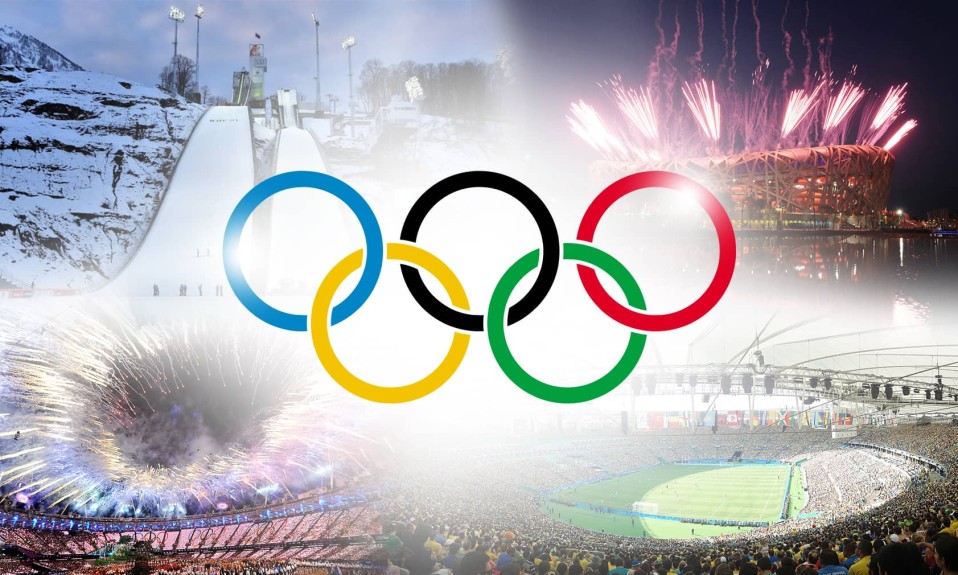Hosting the Olympic Games is a tremendous honour for the host city and country and an exciting event for its residents. Yet, this honour comes with a hefty price tag.
So, what are the most expensive Olympics and how much did they set countries back?
Sochi Winter Olympics
The 2014 Winter Olympics held in Sochi, Russia had a combined cost of $51 billion.
These expenses included the costs of the actual Olympics and the money allocated to infrastructure projects around Sochi, including roads and railroads.
Even though the 2014 Olympics made a $53 million profit, the cost was four times the $12 billion budget, making Sochi the most expensive Olympics in history.
Beijing Summer Olympics
According to the Beijing Organising Committee for the Olympics Games, the total costs did not go over the previous Athens Olympic Games in 2004, about $15 billion. Nevertheless, experts put the actual cost between $40 and $44 billion.
Despite enormous costs, these Games managed to rake in $146 million in profit and deliver one of the most memorable opening ceremonies of our lifetime.
London Summer Olympics
2012’s London Summer Olympics cost $14.6 billion. Although this does not include transport and other infrastructure costs, London 2012 was 76% over budget. The Games were privately funded, although the venues, such as stadiums and other infrastructure, were financed using public funds, bringing up the taxpayer’s contribution to over $4 billion.
The estimated revenue was $5.2 billion, which largely came from sponsorships.
Rio de Janeiro Summer Olympics
The 2016 Summer Olympics in Rio cost an estimated $13.2 billion. This amount includes sports-related expenses, i.e. costs paid by the Olympic Committee to carry out the Games, while other costs included transportation, labour and construction expenditures for sporting sites and the Olympic village.
The cost does not include road construction and hotel upgrades. Even so, the Rio Olympics recorded a loss of $2 billion.
Pyeongchang Winter Olympics
The 2018 Winter Games in Pyeonchang, South Korea, cost an estimated $12.9 million, which was $4 billion higher than the original projections when Pyeonchang won the games’ bid.
A large chunk of these expenses improved transport links between South Korea’s capital Seoul and the host city. Even though revenue was estimated at $55 million, these are still the second-most expensive Olympics held in the winter after Sochi in Russia.
Barcelona Summer Olympics
Barcelona hosted the 1992 Summer Olympics in Spain. The estimated expenses were reported at $9.7 billion, with a cost overrun of 266%. Only costs associated with sports were covered, such as the opening ceremony show performance, medals, and the Olympic village. The majority of the cost was incurred due to the necessity of building infrastructure. The games’ expected revenue was $10 million.
Vancouver Winter Olympics
The 2010 Winter Olympics were held in Vancouver, Canada, for the third time. Vancouver is a rare Olympics, as it came in pretty much on budget.In 2004, the operational costs were estimated at CA$1.354 billion. By 2009, the expenses were projected at CA$1.76 billion, mostly raised through sponsorship and selling broadcasting rights. The final audit revealed that Vancouver 2010 cost $1.84 billion (as projected) on top of earning CA$1,900,000 in profit.
Moscow Summer Olympics
Moscow hosted the Summer Games in 1980. It was the first time the Games were hosted in Eastern Europe and the first and only Summer Games held in a Slavic-speaking country. The Oxford Olympics Study put the cost of Moscow 1980 at $6.3 billion, which includes only sports-related costs. Unfortunately for Moscow, the Games resulted in an estimated deficit of $1,190,000. This shortfall might be the result of the boycott of the Games by the United States and 64 other countries in response to the Soviet invasion of Afghanistan.
Montreal Summer Olympics
The 1976 Summer Olympics were held in Montreal, Quebec. These are the only Summer Games held in Canada, although the Summer Paralympics were held in Toronto the same year. The estimated expenses of Montreal 1976 was $6.1 billion, with a cost overrun of 720%. While Montreal is not the most expensive Olympics ever held, this is the highest cost overrun on record for any of the Games. Most of this overrun was caused by the holdup from the construction union that caused chaos at the construction site as part of demands for more money.
These Games ended up making a loss of CA$990,000.
Sydney Summer Olympics
Sydney, Australia was the host city for the Summer Olympics in 2000. These Games had an estimated cost of $5 billion, with a 90% overrun, including only sports-related costs. Even more alarming, the Auditor-General of New South Wales reported that Sydney 2000 cost the country $6.6 billion, forcing them to move funds from education and health programs.
The final tally brought losses to US$2.1 billion.
Conclusion
Summer and Winter Olympics are among the most-watched sports in the world and also one of the costliest to organise, something that hasn’t changed throughout 52 years of Olympic Games.
And with the experts putting the cost of the 2022 Beijing Winter Olympics close to $38.5 billion, it seems that the list of the most expensive Olympics will keep on growing.

